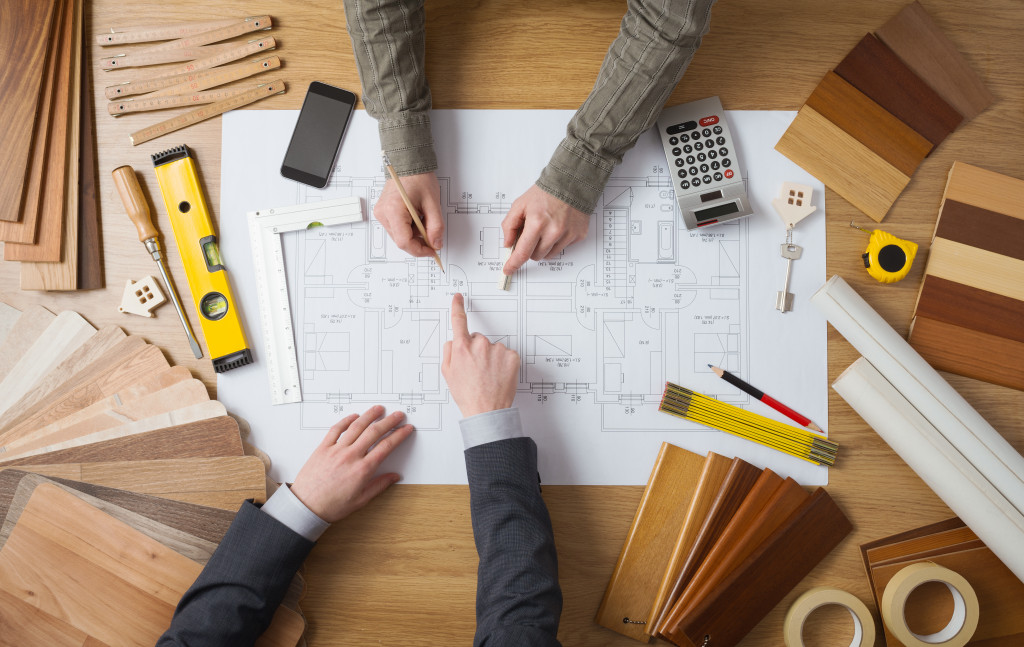A major home project often requires a lot of money, time, and effort. Unless you have unlimited amounts of these three things, you have to ensure that you are ready for that project before committing to it.
The main reason for this is because there are a lot of factors that you have to consider when taking on a major home project, including but not limited to: the cost, the time it would take to complete the project, the materials and labor involved, and, ultimately, the goals of your project.
That said, here are the questions you need to answer before committing to a major home project:
-
Table of Contents
“Is this my forever home?”
Of course, you wouldn’t want to spend a truckload of money on a house that you are not keeping for the long run. For example, if you are thinking of remodeling the basement, you are better off making that kind of investment in a home that you plan to keep forever. So, if you are planning to move in the next five years or so, it’s more practical to hold off on major home projects until you find a place that you can call your forever home.
-
“Can I really afford it?”
Naturally, the first thing that many homeowners consider is the cost of the project. However, too many homeowners underestimate the expenses of doing a major renovation or addition to their home. Furthermore, they tend to forget hidden expenses like taxes, building permits, higher utility bills, surprise structural changes, and so on.
That said, it is important that you have a cash buffer in case unexpected expenses come your way. On top of that, you have to ensure that you can afford the entire project without becoming “house-poor”. After all, that new pool or newly finished basement won’t be as enjoyable if you have to keep worrying about paying the bills next month.
-
“Does my home have existing damage?”
If your house has existing damage from mold, pests, rot, or other causes, you may not be able to start your home project before you address the damages. Covering up these damages with new drywall or a fresh layer of paint will not suffice. Hence, you would also have to factor in the costs of addressing these damages into your total project budget.

-
“Do I have enough time?”
Even if someone else is doing the project for you, you would still have to have enough time on your hands to check the work from time to time, coordinate with the contractors, and take care of the paperwork, along with other homeowner responsibilities. So, if you are stumped with everything that’s going on in your life, it may be wiser to wait until you can free up more time in your schedule to monitor the project from start to finish.
-
“Is it the right time?”
Timing is one of the keys to a successful home project. If you have a lot of major events coming your way, it may not be the right time to start a project that will likely keep you occupied for the next few weeks or so.
Similarly, you also have to consider the season. Starting a home project in winter might reward you with discounts since work for contractors tends to be slow around this time. But if you want the project to finish quickly, it may be better to start construction in the warmer months.
-
“Will I get good ROI?”
If getting a good ROI is important to you, you have to be more careful when choosing the projects you want to do on your home. For example, you may not get a good ROI if you build a pool when you live in a cold state. Or if you live in a middle-class neighborhood, future home buyers may not love your luxury upgrades.
With that in mind, align your home projects with your ROI goals. Consider your neighborhood, what future home buyers would want, and how much you’re willing to spend to upgrade your home. In doing so, you can increase the chances of a good ROI when you eventually decide to sell.
-
“What about my kids and pets?”
If you have children and/or pets in the house, you also have to plan for their safety and well-being when construction starts. For instance, you may have to check in your pets in a kennel and incorporate extra child-proofing in the house, which would bring in additional costs.
Finding out the answers to these questions will better prepare you for the project you plan to do on your home. For any major home project, considering these factors will help you ensure that everything goes smoothly and more efficiently.

